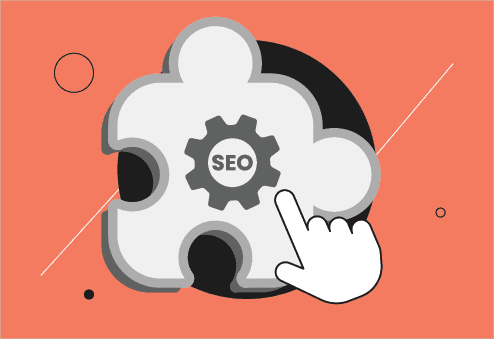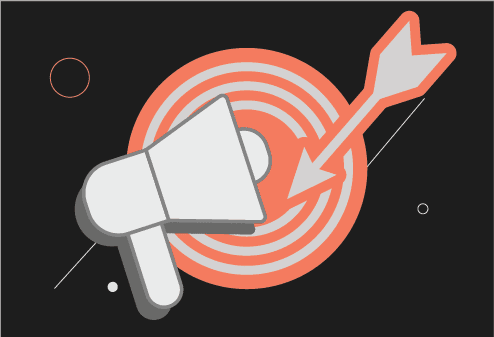Cybersecurity affects your business more than you might think. Every day, hackers attack websites around 2,200 times—that’s almost one cyberattack every 39 seconds. Crazy, right?
Strong security helps you grow online. It keeps customer data safe and builds trust. If your customers feel secure, they stay loyal, boosting your brand’s image and your sales.
But here’s the thing: many companies overlook cybersecurity, especially startups. Marketing campaigns run smoothly until a breach happens. A single breach can cost a small business around $200,000 on average, forcing many to shut down.
Digital marketing relies on data and trust. If your audience worries about privacy, your online efforts lose power. Safe websites rank better in Google, too. Search engines favor secure sites, meaning cybersecurity directly impacts your SEO and visibility.
So, how exactly does cybersecurity shape digital growth and marketing success? Let’s break it down clearly in this article.
What is Cybersecurity, and How Does it Connect to Digital Growth?
Cybersecurity is the practice of keeping computers, websites, and online data safe from cyberattacks. It protects sensitive information like customer details, financial records, and business secrets. Start with the ISACA Cybersecurity Fundamentals to build essential knowledge.
Think of cybersecurity as a digital security guard. It blocks harmful threats and stops hackers from stealing or damaging important data. Good cybersecurity keeps your business running smoothly.
When your cybersecurity is strong, digital growth becomes easier. Customers feel safe interacting with your website and services. That means they buy more, recommend you more, and trust your brand.
Managed IT services, like those offered by TechAidDubai, boost cybersecurity for businesses. These services monitor systems closely, spot risks early, and prevent costly attacks. With reliable IT services, your business grows faster and stays secure online.
For example, companies with strong cybersecurity grow around 20% faster than those without protection. Customers trust businesses more when their data feels safe.
Simply put, cybersecurity protects your growth by keeping data secure and customers happy.
What are the Most Common Cybersecurity Threats to Digital Marketing?
Cyber threats are always around, and marketers face specific risks. Knowing these threats helps you stay ready and safe online.
Phishing Attacks and Social Engineering
Phishing happens when hackers pretend to be someone trustworthy. They send fake emails or messages to trick marketers into sharing passwords or personal details. Using Phishing Simulation Software can help teams recognize and avoid these scams before real damage occurs.
For instance, you might get an email pretending to be from Facebook Ads asking you to “confirm your account details.” Clicking the link hands over your data to scammers. Around 90% of cyberattacks on businesses start with phishing attempts.
Malware and Ransomware
Malware is harmful software that sneaks into your computer without your knowledge. It infects websites, online ads, or emails. Once in, it can slow down your site, steal customer information, or delete important files.
Ransomware is a type of malware. It locks your digital files until you pay money to unlock them. Marketers risk losing months of marketing campaigns, leads, or customer data. In 2023 alone, ransomware attacks cost businesses billions of dollars worldwide.
Data Breaches
A data breach occurs when private information leaks online. For startups, even one breach is serious. It damages trust and can put small companies out of business. Understanding and defending against common TTPs cybersecurity is crucial to prevent attacks and safeguard sensitive data.
In 2022, a popular marketing startup lost thousands of customer records in a data breach. This breach cost the company more than $150,000 and hurt its reputation badly.
Understanding these threats helps protect your marketing and keeps your digital efforts safe
What’s the Difference Between Cybersecurity for Large Businesses and Startups?
Cybersecurity looks different depending on your company size. Big companies often have more money and resources to spend. Startups usually work with tighter budgets and smaller teams, so priorities differ.
Large businesses have dedicated security teams. They can afford advanced software and full-time cybersecurity experts. These businesses handle millions of customer records, so they need strict security rules.
On the other side, startups focus on flexibility and cost-saving. They can’t always pay for expensive software or security experts. Because of limited resources, startups often rely on affordable options and careful planning.
That’s where startup consulting can help. Specialized consultants guide small companies to choose the right cybersecurity solutions. For example, startup consultants suggest affordable tools, help train teams, and set clear security plans within tight budgets.
A large business might spend hundreds of thousands of dollars on cybersecurity each year. In contrast, startups typically spend much less. But even small investments in security can save startups from costly hacks or data leaks later. Startups may not have the resources to invest in advanced tools, but managed IT services for cybersecurity and IT support can help them implement cost-effective solutions, reducing the risks of cyberattacks without needing a large IT department.
How do AI Chatbots Affect Cybersecurity in Digital Marketing?
AI chatbots are more than tools to chat with customers. They also help businesses keep their data safe. Companies now use chatbots to spot security issues fast and protect user data.
Advantages of AI Chatbots in Strengthening Cybersecurity
- Quick threat detection: AI chatbots can spot unusual activity within seconds. For example, if someone tries to log in multiple times using wrong passwords, the chatbot can alert the security team instantly.
- Efficient customer data management: AI chatbots manage user details securely. They handle sensitive data such as payment information, phone numbers, and addresses. This reduces human mistakes and keeps private information safe.
Businesses using AI chatbots report 30% fewer security breaches because threats get spotted early.
Potential Risks of AI Chatbots
- Data exposure if improperly managed: AI chatbots deal with large amounts of customer information. If not secured properly, hackers might access this data easily. In 2021, a major retail brand had a chatbot data leak, affecting thousands of customers.
- Importance of secure chatbot development practices: To prevent risks, chatbot development must follow clear security rules:
- Use strong encryption to keep customer conversations private.
- Regularly test chatbot security to find weaknesses early.
- Limit chatbot access to sensitive customer details.
Using AI chatbots is smart for digital marketing. They provide safety and build trust. But always ensure chatbots are developed and managed carefully to avoid security problems. As more businesses use LLM-powered tools, understanding key aspects of LLM security is essential for protecting sensitive data. It’s also important to understand the pros and cons of chatbots to make informed decisions about their implementation and usage
How to Implement Effective Cybersecurity Measures for Digital Growth
Keeping your business safe online requires clear and practical steps. Here’s how you can quickly put effective cybersecurity into action.
Conduct Regular Security Audits
Regular security audits help find weak spots before hackers do. Follow these simple steps:
- Check all software and hardware for security issues.
- Test your website and apps for vulnerabilities.
- Review passwords regularly and update them often.
- Make sure backup systems work correctly.
Around 68% of companies find security gaps through audits, fixing them before trouble starts.
Invest in Reliable IT Services
Integrate Single Sign-On (SSO) solutions to centralize user authentication. This helps manage access more securely and reduces the risks of password-related breaches. Good cybersecurity starts with reliable IT services. Hiring professional IT providers like IT AMC Services protects your business around the clock. These providers handle important tasks, including:
- Monitoring your networks constantly.
- Updating antivirus software regularly.
- Blocking suspicious activity immediately.
Another growing trend is leveraging outsourced IT services to reinforce both security and efficiency in business operations. Many organizations are following strategies outlined in guides like Corsica’s IT outsourcing services to handle key IT responsibilities, including comprehensive cybersecurity management. Trusted outsourcing partners can help businesses modernize outdated systems, monitor threats 24/7, and introduce best practices for risk reduction all crucial elements for supporting digital marketing growth while keeping customer data safe.
For example, businesses with professional IT support experience 40% fewer cyberattacks each year. An experienced IT support company can significantly reduce the risk of cyberattacks for businesses.
Track and Maintain Your Attack Surface Inventory
As your business grows online through websites, emails, ads, and third-party tools, your risk of cyberattacks also increases. An up-to-date attack surface inventory is a detailed list that helps you keep track of everything your company has connected to the internet, including all domains, software, plugins, and cloud services.
Keeping this list current helps you find weak spots before hackers do. It also makes securing your digital tools and platforms easier. Using automated tools for attack surface discovery ensures you do not miss anything, even as you add new apps or marketing channels. Integrating incident management processes alongside these tools allows your team to respond quickly to security events, minimizing potential damage and maintaining business continuity.
Training Teams on Cybersecurity Best Practices
Even the strongest security measures can fail if your staff is unprepared. Regular training helps employees spot threats and react properly:
- Teach staff about common scams like phishing emails.
- Train everyone on safe password use.
- Run practice sessions on how to respond to cyber threats.
Studies show that trained teams reduce security issues by over 50%.
Taking these simple yet powerful steps ensures your digital strategies remain safe, helping your business grow securely.
Mistakes to Avoid When Integrating Cybersecurity into Digital Marketing
Avoiding common cybersecurity mistakes keeps your marketing efforts secure. One of the most crucial steps is implementing secure authentication to prevent unauthorized access and data leaks. Many startups and marketers overlook simple issues that later cost money and reputation. Let’s look at frequent mistakes and how you can easily dodge them.
Underestimating Cybersecurity Risks
One big error is thinking cyber threats won’t affect your business. Many startups believe they’re too small or unknown to get hacked. But hackers often target smaller companies because they’re easier to attack.
Over 40% of small businesses experience cyberattacks each year. Ignoring these threats can shut down your business quickly. Recognize risks early and take them seriously by investing in cybersecurity solutions that safeguard your operations.
Poor Employee Training
Your team is your first defense against cyber threats. Yet, many companies don’t train their staff well enough. Without proper training, employees click harmful links or share private passwords unknowingly.
For instance, about 88% of data breaches happen because of simple human mistakes. Regular cybersecurity training programs prevent this. Teach staff to spot fake emails, protect passwords, and safely handle sensitive information.
Over-reliance on Basic Security Tools
Essential antivirus software alone can’t keep your business fully secure. These simple tools miss advanced threats like ransomware or sophisticated phishing scams. Hackers find ways around basic security quickly.
Think of antivirus software like locking just your front door while leaving windows open. You need stronger security measures, such as firewalls, regular security updates, and advanced threat detection systems. At the same time, a cybersecurity marketing agency can guide businesses in implementing these stronger measures and staying ahead of evolving threats.
Final Thoughts
Cybersecurity directly shapes how well your digital marketing and business grow. Ignoring online security can quickly lead to big losses, damaged reputations, and broken customer trust. But with smart planning, strong IT services, and proper employee training, you can avoid these problems easily.
Remember, digital safety isn’t a one-time task. Cyber threats continue to evolve, so staying alert matters. Keep checking your security practices regularly and adjust as needed.
Investing a little time and money in cybersecurity today saves huge headaches tomorrow. Stay safe, keep your customers protected, and watch your business grow securely online.


